You ever ask yourself, “What if The Rocky Horror Picture Show were written and directed to the fucking hilt by Brian De Palma?”
Neither had I before I saw Phantom of the Paradise, De Palma’s smart, sad and nasty tongue-in-cheek rocknroll musical thriller that preceded The Rocky Horror Picture Show by a year. Though it never saw the perpetual midnight-circuit success of Rocky Horror, Phantom of the Paradise has slowly but surely secured its own cult following, which checks out ‘cause it fuckin’ rules. If you’re into rocknroll movies or De Palma or spooky retro shit or ‘70s musicals or Phantom of the Opera or glam rock or all of the above, Phantom of the Paradise is well worth your time.
Before I saw Phantom of the Paradise, I was only vaguely aware of it as a pre-Carrie De Palma oddity, then introduced to it in earnest via Noah Baumbach’s 2015 De Palma documentary (essential viewing for anyone with a mild to healthy obsession with De Palma and/or the “movie brat” generation of filmmakers). In the doc, De Palma talks about getting the idea for Phantom hanging out in LA rock clubs, observing all the colorful personalities of the music industry at the time, and hearing Muzak in an elevator.
“The idea came [..] when I heard a Beatles song in Muzak in the elevator, and I said, they can take something extremely original and turn it into syrup, and it’s completely commercial.” With this notion and setting in mind, De Palma conceived a story about a Phantom of the Opera-type figure whose music is co-opted by a big record producer and filtered through the popular trends of the day to open a new rocknroll palace called The Paradise.
If you watched the movie’s intro above (voiced by Rod Serling, what a get amirite), you’ve already got a pretty decent idea of the movie’s plot. I could spell it all out for you in more detail but it’d get convoluted real fast ‘cause the plots of these kinds of movies, constructed around musical numbers and dank set pieces, are fuckin’ wild by design. The gist of the thing is it’s a modern pop-art fusion of Phantom of the Opera and Goethe’s Faust with shades of Hitchcock, Dorian Gray, Grease, Alice Cooper, and Bowie’s Ziggy Stardust thrown in for good measure.
William Finley, De Palma’s earliest acting collaborator, applies the kabuki pathos from the pair’s college short films to create a fascinating, tragic monster in the Phantom. It helps that he sports one of the coolest sci-fi/horror costume designs ever. Finley passed away in 2012, and his career was mostly that of an eccentric supporting genre player. Phantom of the Paradise is an excellent document of his talent and a fantastic starring role to suit his strange, sympathetic charisma.
I’d be remiss if I didn’t also give a shoutout to my girl Jessica Harper as Phoenix, a Karen Carpenter-esque singer who becomes the Phantom’s muse. Harper is another genre veteran (most well known for Dario Argento’s Suspiria) whose killer singing voice is put to highly effective use, as is the fringey arthouse vibe that makes her such a mesmerizing presence.
I’m also obsessed with Beef, the bombastic glam rocker played by Gerrit Graham, another actor from De Palma’s early repertory company. Just an outstanding example of show-stealing theatrical revelry and relentless comic relief that carries the whole movie through its second act.
Like any genre-mixing work assembled from disparate creative parts, every ingredient of Phantom of the Paradise matters, but its the combination of De Palma’s visual flair and rhythmic viscera with the music and uncanny screen presence of Paul Williams that really propels the whole thing. As the evil Swan, Williams is just so bizarre to look at, he’s like no other top-billed villain you’ve ever seen. Every time I watch this movie, part of me is just in awe of the balls it took for De Palma to devote so much screen time to someone with such a non-traditionally interesting look and vibe.
Williams also provides the film’s soundtrack, utilizing his extensive chops as a songwriter for hire. The ballads from the Phantom’s “Faust cantata” are genuinely moving and beautiful. And the various pop versions of those same ballads — riffing on ‘70s doo-wop nostalgia, surf rock, glam, and horror rock — are both brilliant parodies and legit, serviceable renditions of those genres. Most of the movie’s high points are when De Palma does directorial donuts around Williams’ music, like this banger of a scene where he applies his signature split screen to the chaos of a doomed surf-rock rehearsal.
Phantom of the Paradise isn’t quite an “obscure” movie anymore, but it’ll probably always be something of a footnote to Rocky Horror. It deserves better. All praise to Carrie as De Palma’s triumphant commercial debut, but in my mind, everything there is to love about De Palma was already fully baked in Phantom.


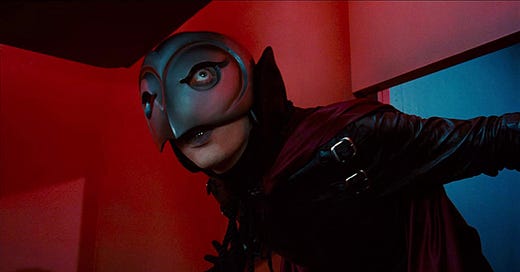



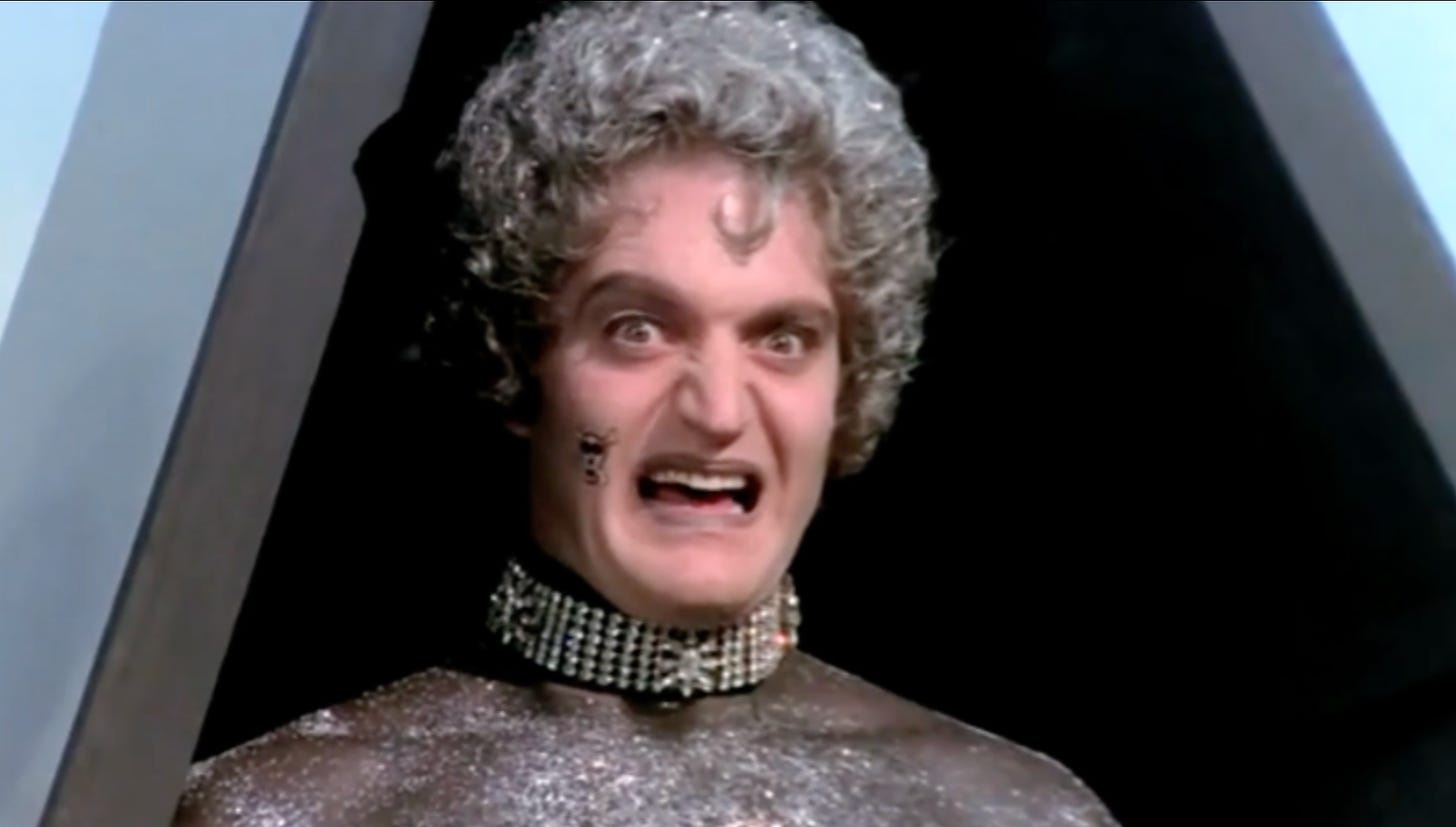
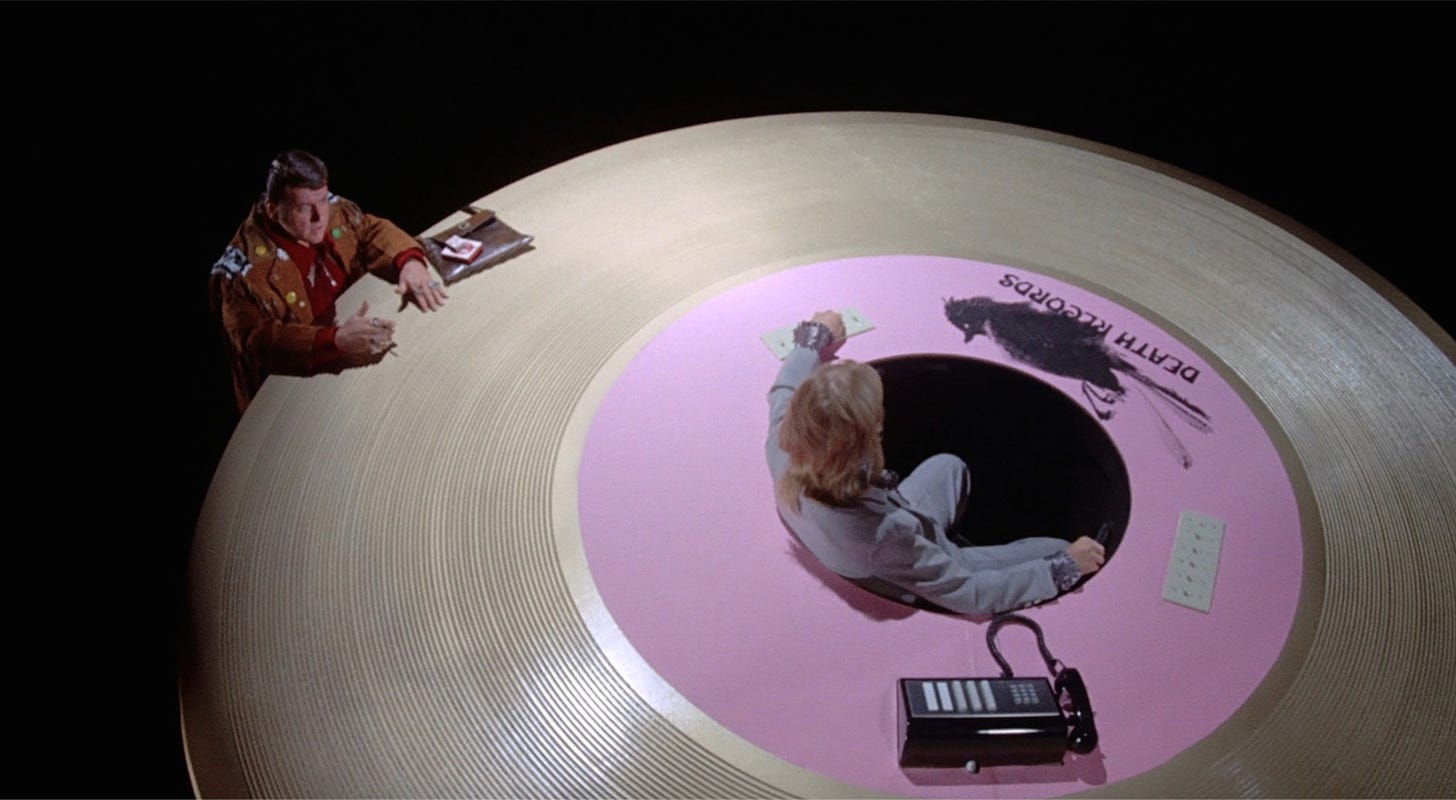
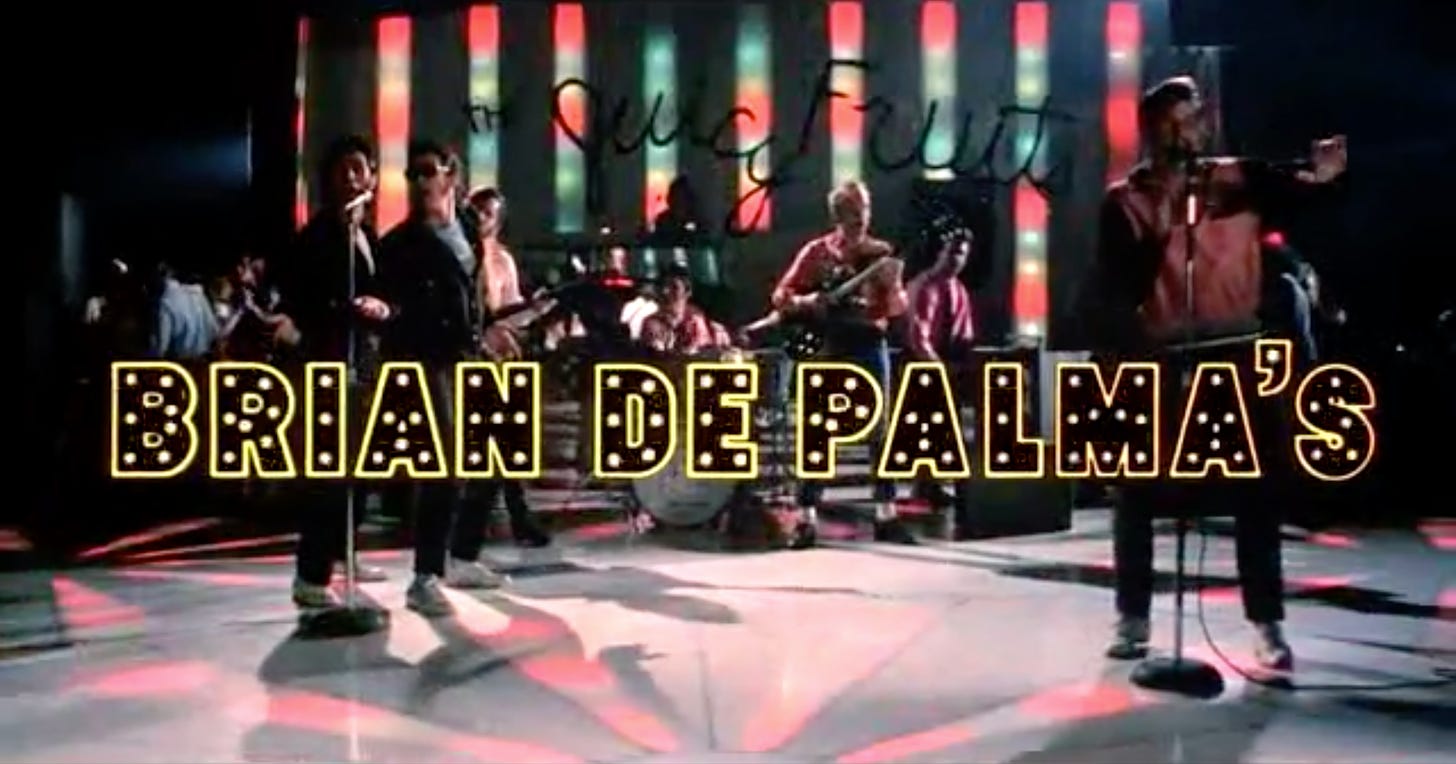
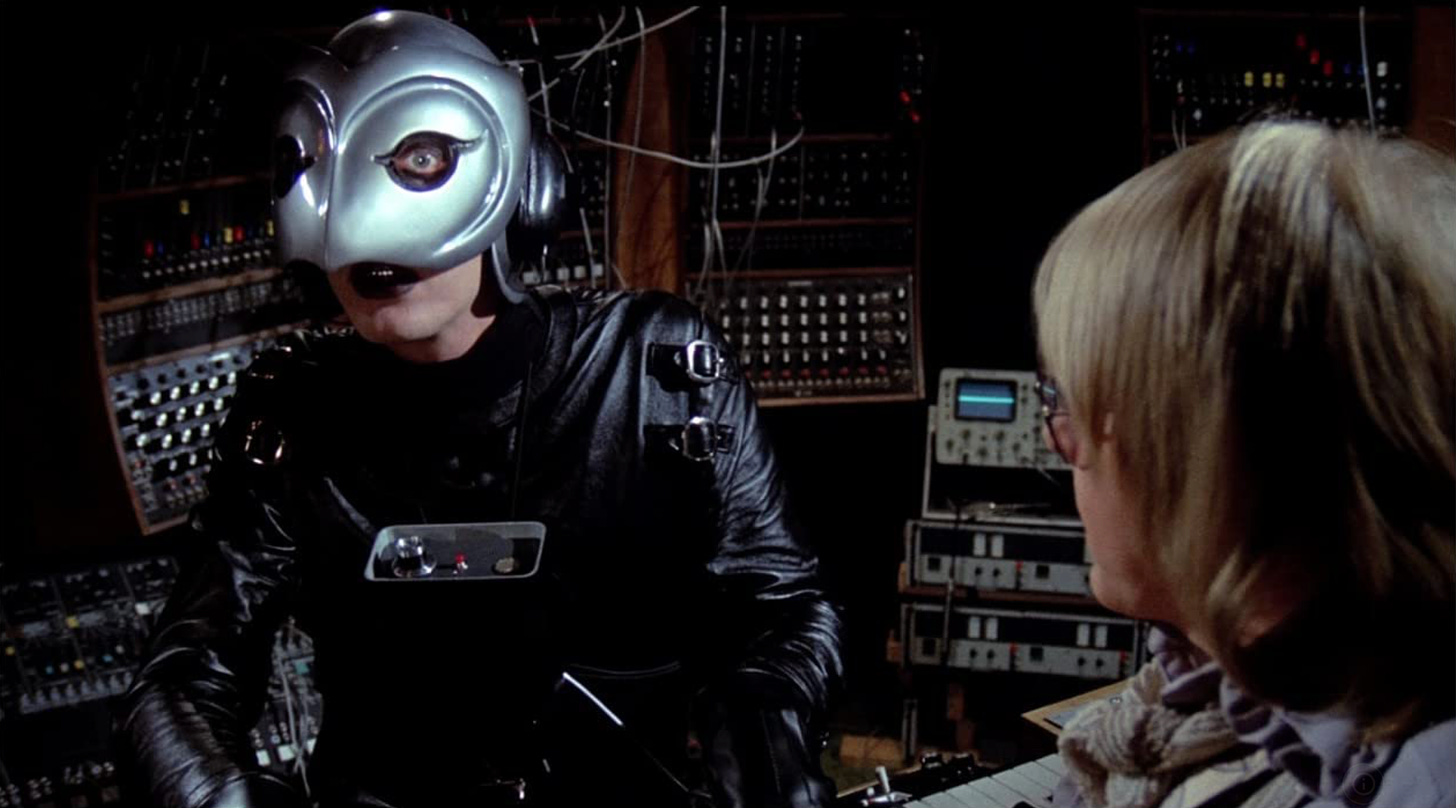
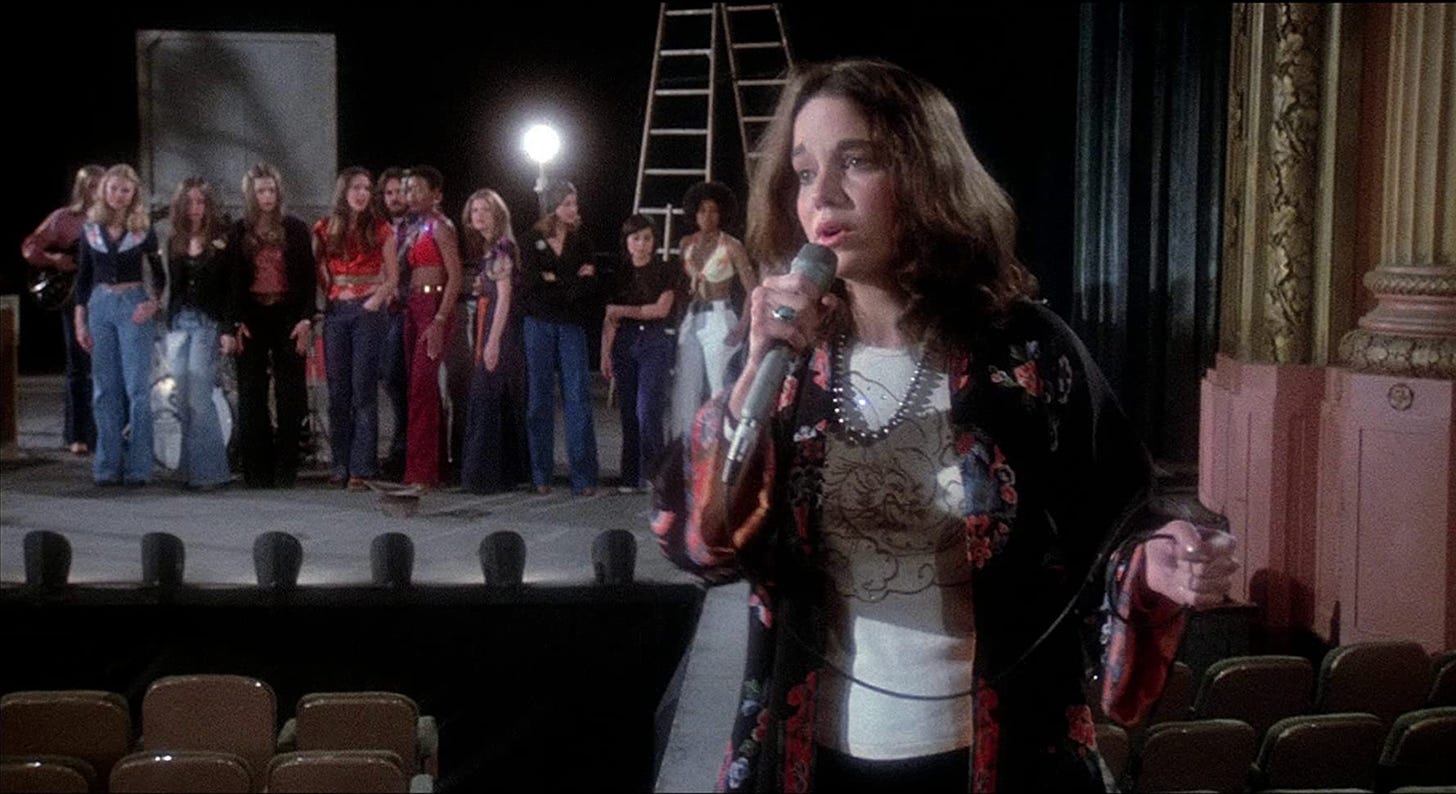
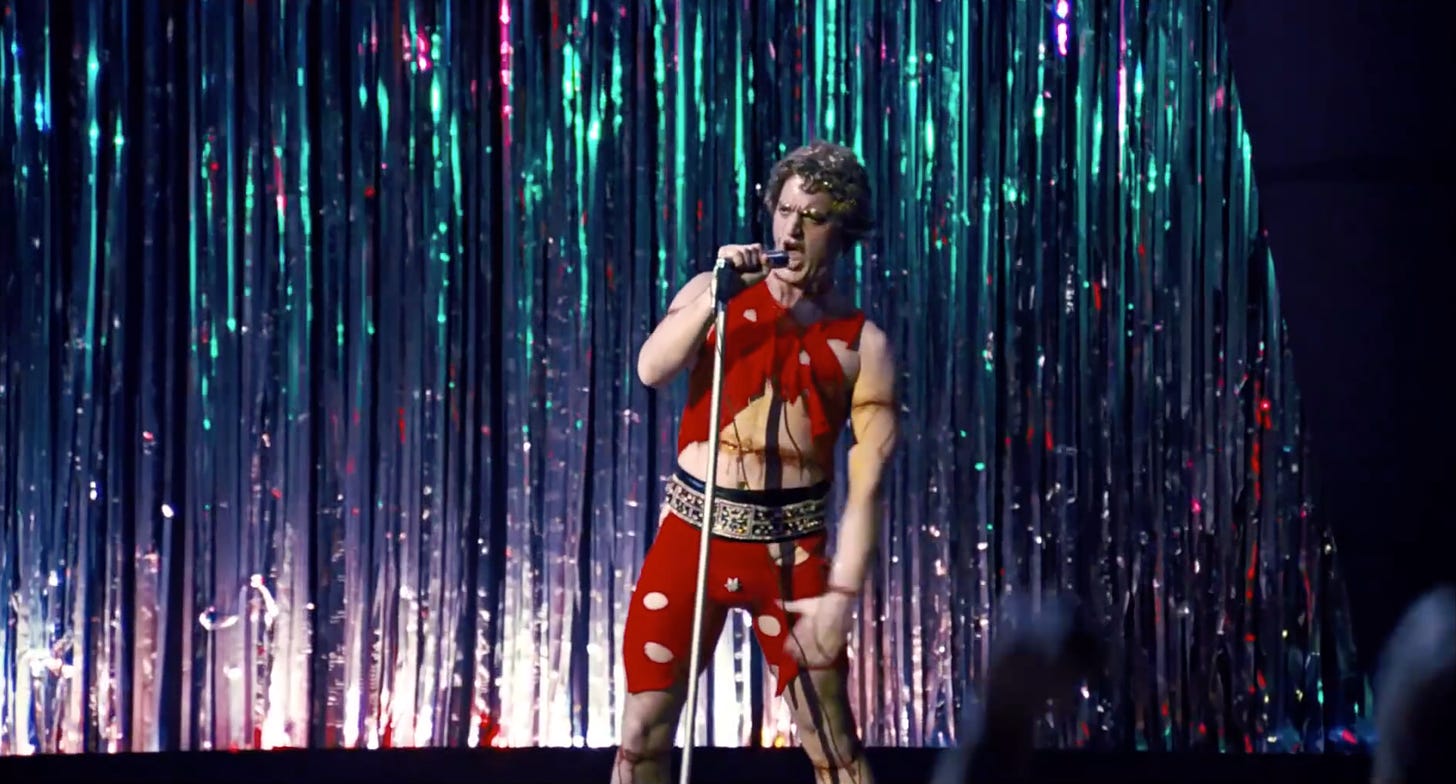
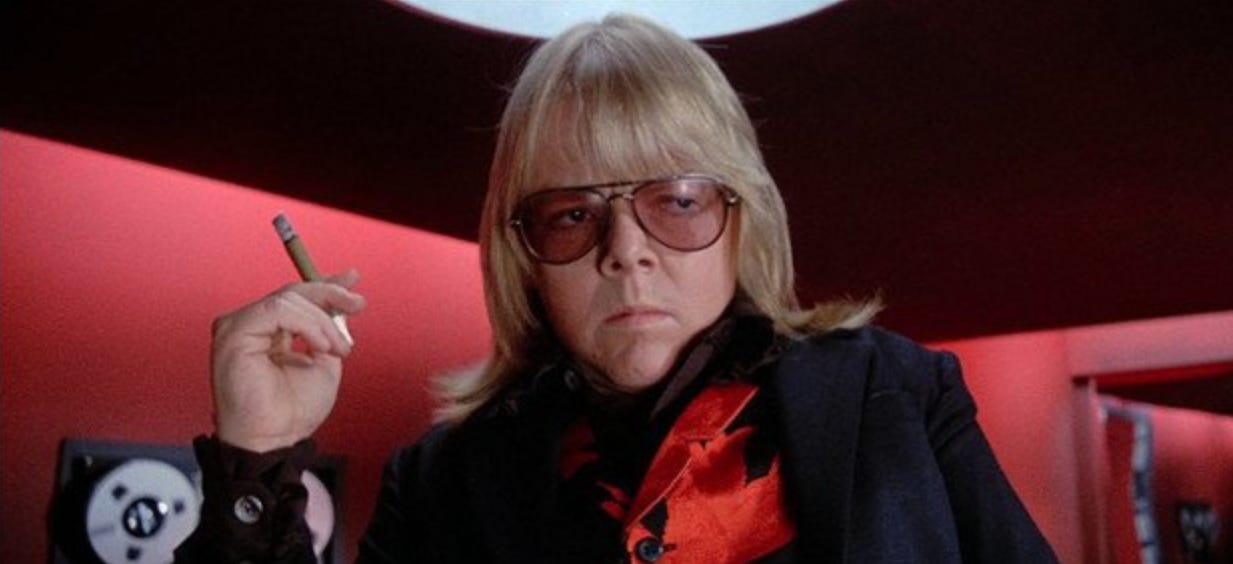
This has been on my “to watch” list for ages. I need to get on this one.